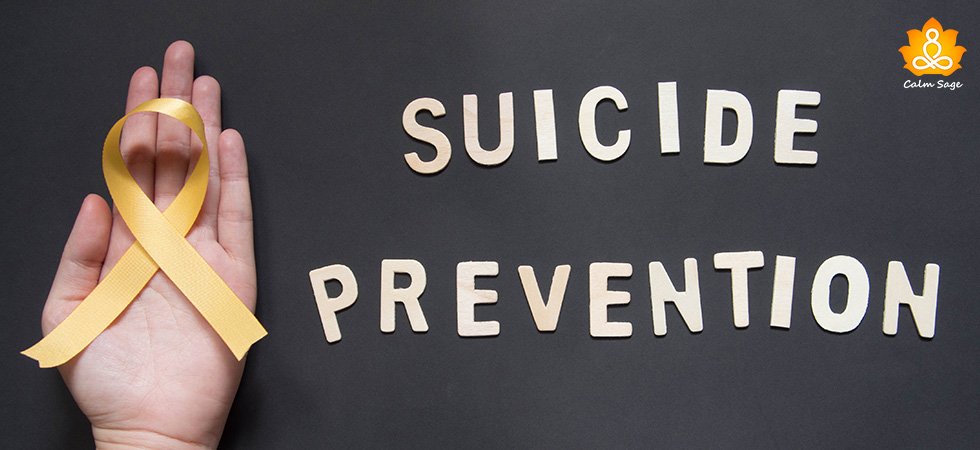Suicidal Ideation Or Suicidal Thoughts: Symptoms, Causes, Coping Tips, And More

Before starting with this informative article, please read the contact information given in the box below and save it for emergencies.
Note: If the information presented in this article, triggers suicidal thoughts, we request you to please contact: National Suicide Prevention Lifeline
For support and assistance from a trained mental health advisor, call 988. For emergencies situations, call 911
What is Suicidal Ideation or Suicidal Thoughts?
Suicidal thoughts or suicidal ideation are all about planning or thinking about committing suicide. Suicidal ideation ranges from detailed planning to fleeting considerations related to suicide. The major fact related to suicidal thoughts is that it does not include the final act.
Suicidal thoughts are a common issue experienced by most people especially during tough times, stress, or any other mental health-related issues. According to psychology, suicidal thoughts are always connected with an underlying problem.
If you or your loved one is having such thoughts or ideologies about committing suicide, please read this blog to gain proper insight and support.
Do you know September is Suicide Awareness Month?
If yes or no, please have a look at the below-mentioned list of articles to help us raise awareness, break the stigmas, encourage people to talk more about their issues and struggles, and understand how to prevent suicide:
- Creating hope through action: Observing World Suicide Prevention Day
- Prevent your friends from crossing that line
- #Letstalkaboutsuicide: How to safely and responsibly hold conversations about suicide
- 9 Celebrities who survived the suicide
- Why does suicide seem like a solution to you?
- 4 Steps to prevent suicide
- How to identify suicidal behavior in teens?
Types of Suicidal Thoughts
There are two types of suicide ideation:
1. Passive Suicide Ideation: Passive suicide ideation is when people have thoughts of self-harm or committing suicide but they do not plan it out.
2. Active Suicide Ideation: Active suicide ideation is when people have thoughts of self-harm or suicide and have already created a plan to do so.
Symptoms of Suicidal Thoughts
Warning signs of suicidal thoughts or suicidal ideation are:
- Isolation
- Hopelessness
- Feeling trapped
- Talking and focusing more on suicide and death
- Possession-related thoughts
- Increased use of alcohol or substance
- Increased anger, mood swings, irritability, or rage
- Constant engagement in risk-taking behaviors
- Accessing the means to implement the suicide or self-harm plan
- Acting weird or constantly reminding people that you’re into self-harm
- Constant feelings of anxiousness
If you think you or your loved one is engaged in such thoughts, the first ever step is to ask them out and openly talk about their issues. Do not avoid talking as it will trigger the symptoms more and more. Make sure that you’re concerned about them so that they can feel safe around you and can have a conversation with you.
Additionally, some people can have a blend of active and passive suicidal thoughts, in such cases, try to be more empathetic and connect with a mental health provider for treatment and coping strategies.
Causes of Suicidal Thoughts
There are various causes of suicidal ideation. In most cases, the major cause is a loss of purpose and meaning in life. But can also happen due to relationship issues, substance use, pressure at work, constant failure, financial difficulties, underlying mental health disorders, and more.
Risk factors related to suicidal ideation are:
- Previously attempted suicide in the past
- Underlying mental health issue
- Isolation, hopelessness, or loneliness
- Belonging to the LGBTQ community
- Having served in the army
- Having a chronic disorder or illness
- Having chronic pain
- Heredity
- Alcohol use disorder
- Childhood abuse
- Trauma
Treatment of Suicidal Thoughts
If you or your loved one is having suicidal thoughts and you’re not able to process feelings, you must try connecting with a mental health expert for bringing positive changes in the lifestyle and reduce the risk and ideation of committing suicide.
Mental health experts may recommend:
- Talk therapy or psychotherapy to cope with symptoms
- Family therapy and education to develop a better understanding and improve family dynamics
- Treatment for substance use or alcohol use disorder
- Positive lifestyle changes to support a solid support network and improve overall lifestyle
- Medications to treat an underlying mental health issue
Coping Tips Related to Suicidal Thoughts
Here are some effective and simple ways to cope with suicidal thoughts. the mentioned tips will help you in getting back on the right track:
- Identify your triggers and try to eliminate them by talking to your therapist or loved one.
- Always remember, feelings are temporary and with the help of treatment they will fade away.
- Take care of yourself, take medications on time, and try to bring on positive life changes.
- Build a support system and create a crisis plan.
- Get active and try to develop more interests.
- Try simple breathing exercises.
- Challenge self-defeating thoughts with the help of journaling.
I hope this blog helps you with understanding and cope with suicidal thoughts. For more such content, connect with us on all social media platforms.
Thanks for reading!




















